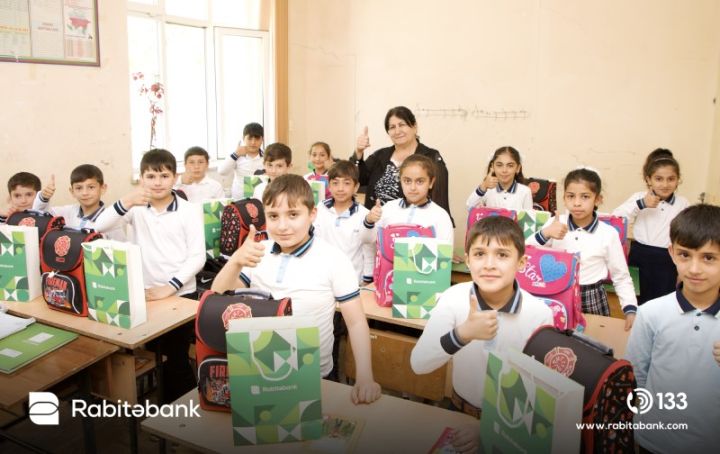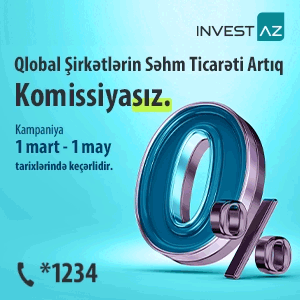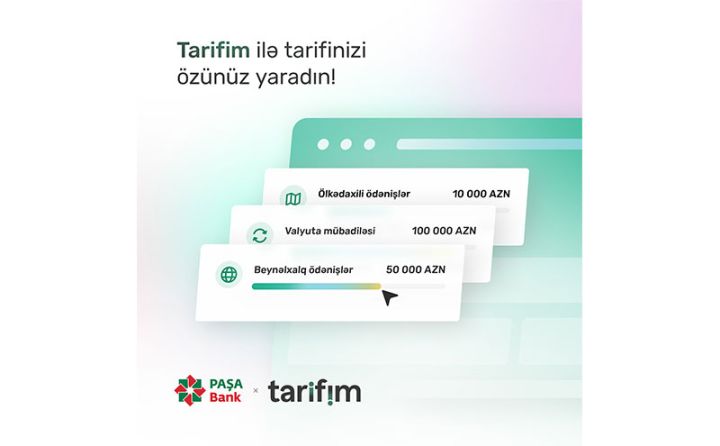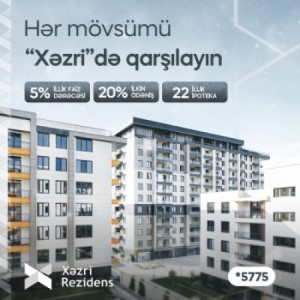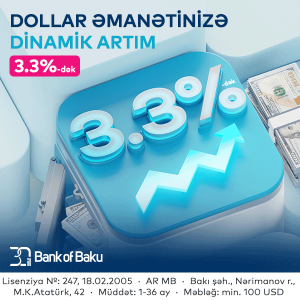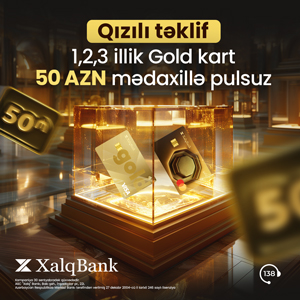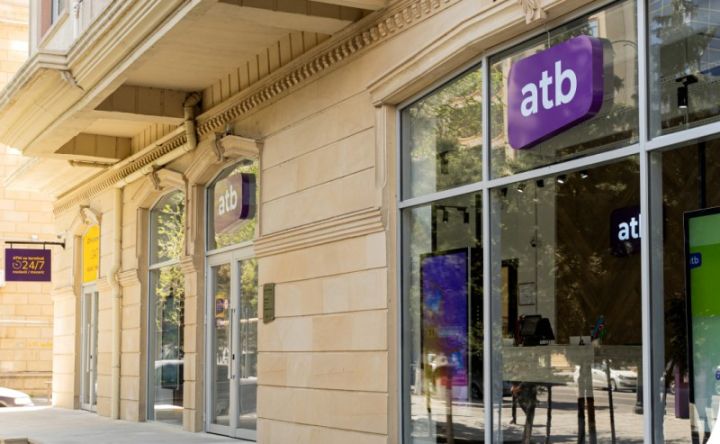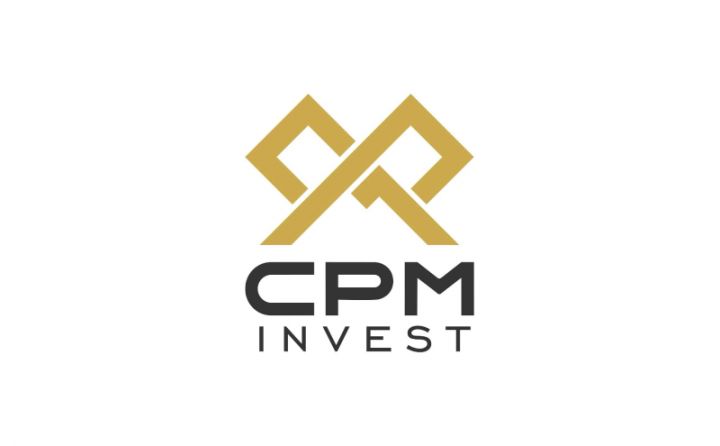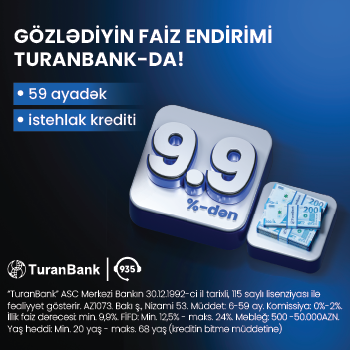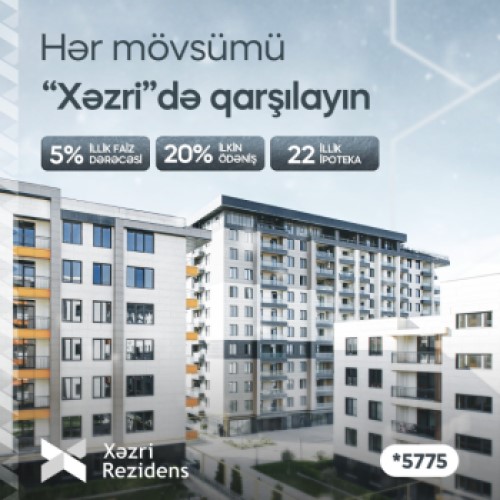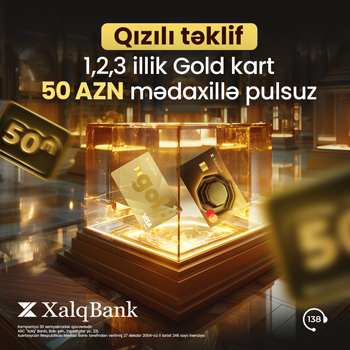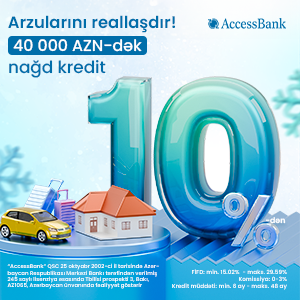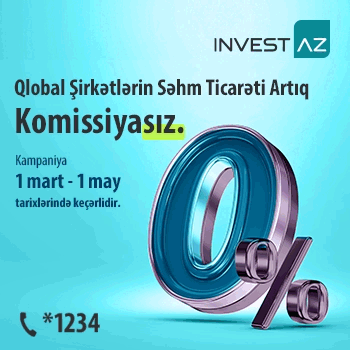"Fitch" Azərbaycanın reytinqini təsdiqlədi
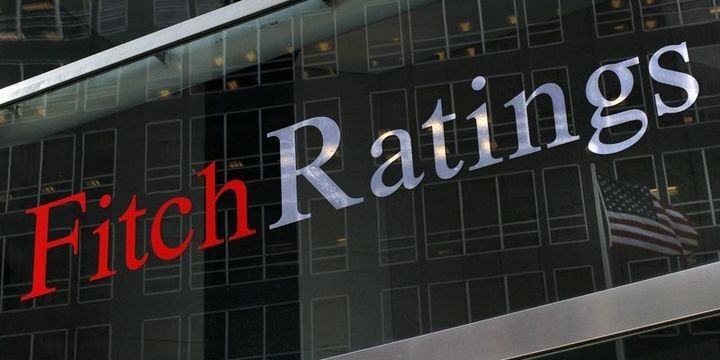
Beynəlxalq reytinq agentliyi "Fitch Ratings" Azərbaycanın xarici valyutada uzunmüddətli defolt reytinqini "BB+" səviyyəsində təsdiqləyib.
Bu barədə agentliyin açıqlamasında bildirilir.
Qurumun reytinq üzrə proqnozu isə "Sabit"dir.
Bundan əlavə qısamüddətli emitentin defolt reytinqi "B", yerli valyutada uzunmüddətli emitentin defolt reytinqi "BB+", valyutada qısamüddətli emitentin defolt reytinqi "B", ölkə tavanı "BB+" müəyyən edilib.
Azərbaycanın "BB+" reytinqi onun güclü xarici balansını və aşağı dövlət borcunu və zəif bank sektorunu özündə əks etdirir. Konsolidə edilmiş maliyyə profisitinin ÜDM-in 6% səviyyəsinə qədər irəliləməsi (bura SOFAZ-dan da ayrılmalar daxildir) ehtimal olunur. Bu isə hazırkı BB səviyyəsi ilə müqayisə etdikdə indi bu rəqəm ortalama mənfi -2,8%-dir. Ölkənin güclü performansına 2019-cu ildə ortalama 65 dollar/barel neft qiyməti və artan qaz hasilatı dəstəkləyib. Türkiyə və Avropa bazarlarına ixrac ediləcək "Şahdəniz 2" yatağından çıxarılan qaz 2020-ci ildə də inkişafı dəstəkləyəcək və karbohidrogen gəlirlərini artıracaq. Neftin aşağı qiymətinin 2020-ci ildə 62,5 dollar/barel, 2021-ci ildə isə 60 dollar/barel olacağı proqnozlaşdırılır.
Fitch hesab edir ki, daha yüksək sosial ödəmələr ÜDM-in 2020-ci ildə 4,4%, 2021-ci ildə isə 4,2% daralmasına səbəb olacaq. 2020-ci ilin xərcləri prioritetləri arasında məcburi tibbi sığorta proqramı (ÜDM-in 1.1% -i) yer alır və 2019-cu ildə dövlət maaşının artırılması tədbirlərindən dövlət sektoru əməkhaqqı qanun layihəsinə və sosial təminat töhfələrinə təsir göstərəcək.
Fitch Ratings has affirmed Azerbaijan's Long-Term Foreign-Currency Issuer Default Rating (IDR) at 'BB+' with a Stable Outlook.
KEY RATING DRIVERS
Azerbaijan's 'BB+' IDRs reflect its strong external balance sheet and low government debt, set against weaknesses from its heavy hydrocarbon dependence, an underdeveloped, albeit improving policy framework, weak governance indicators and continued banking sector vulnerabilities.
The consolidated fiscal surplus is estimated to have increased to 6.0% of GDP for 2019 (including the State Oil Fund of Azerbaijan, SOFAZ), compared with the current 'BB' median of -2.8%. The strong performance is supported by the resilient oil price averaging USD65/b in 2019 and increased gas production. New gas production and exports to Europe and Turkey coming on-stream in 2020 from the Shah Deniz 2 gas field will continue to support sizeable hydrocarbon revenues in the coming years and offset slowing oil production growth.
Lower oil prices (2020: USD62.5/b 2021: USD60.0/b) and higher social spending should drive a narrowing of the fiscal surplus to 4.4% of GDP in 2020 and 4.2% by 2021. 2020 expenditure priorities include the roll-out of a mandatory health insurance programme (1.1% of GDP), and will see carry-over effects from the 2019 public wage rise measures on the public sector wage bill and social security contributions.
The 2020 budget complies with the revised fiscal rule adopted in 2018, which was relaxed in November 2019 by restricting consolidated expenditure growth to 3% in real, instead of nominal, terms. The fiscal rule also constrains oil revenue spending, and necessitates a decline in the non-oil primary deficit. The recent improvements to the policy framework, stemming from the adoption of the fiscal rule and medium-term debt management strategy, could benefit the credibility of the fiscal framework but the track record of compliance is still limited.
Azerbaijan's fiscal and external buffers are stand-out strengths relative to the 'BB' and 'BBB' medians. Gross general government debt at 18.9% of GDP in 2019, is less than half the current 'BB' median of 46.5%. Government on-lending and guarantees of 31% of GDP at end-3Q19 accruing to (International Bank of Azerbaijan's (IBA) (B-/Positive) restructuring and to gas investment projects are a significant contingent liability. Fitch forecasts debt/GDP to decline only slightly to 17.7% of GDP by 2021 despite significantly larger fiscal surpluses, as government assets with SOFAZ are forecast to grow to 95.6% of GDP (end-September 2019: 90.3%). SOFAZ assets are predominantly invested abroad and translate into a sovereign net foreign asset position of 86.2% of GDP in 2019 ('BB' median: 0.4%). Current account surpluses estimated at 9.9% of GDP in 2018-2021, driven by hydrocarbon exports, support further accumulation of SOFAZ assets.
Vulnerability to oil-price shocks is high, with commodity exports at 67% of current account receipts. The stability of the exchange rate at 1.7AZN/USD since April 2017 despite oil price volatility raises questions about whether the authorities would allow the currency to act as a shock absorber if there was a new oil price shock.
Real GDP growth continues to recover from the oil shock and devaluation crises since 2014. Fitch estimates that real GDP growth reached 2.4% in 2019 from 1.4% in 2018, driven by 3.5% non-oil growth and just 0.8% for the oil and gas industry. We forecast growth to stabilise at 2.2% in 2020-21, driven by new gas production coming on-stream, and supported by the government packages announced in 1H19. Inflation averaged 2.6% in 2019, remaining closer to the lower bound of the 4 plus or minus 2% target band, helped by the stable exchange rate and lower imported food prices. Fitch forecasts inflation to rise to average 3.3% in 2020 due to stronger demand pressures from government measures and policy rate cuts (225bps between February and December 2019).
Azerbaijani banks are recovering from legacy asset quality problems since the 2015 devaluations, but remain very weak, as reflected by its poor 'Fitch Banking System Indicator (BSI) score of 'b'. Capitalisation had increased to 23.0% at end-October 2019 (end-2018: 19.4%), while non-performing loans fell considerably to 11.0% at end-October 2019 (end-2018: 14.5%), helped by write-offs, the government's NPL resolution programme payments to banks and households, and also as new loans recovered since 4Q18 to grow by 20.3%yoy in November 2019. Moral hazard distortions from the NPL resolution programme and the acceleration in credit growth could lead to further asset quality issues in the future if left unchecked.
The largest bank, state-owned IBA, faced a debt restructuring in 2017, but is now profitable again with sound capitalisation liquidity and low-risk assets. However, it continues to hold a large, albeit decreasing, open FX position of USD0.8 billion at end-October 2019 (2017: USD1.9 billion), which should continue decreasing gradually in 2020 towards the USD150 million threshold to be compliant with regulatory requirements.
In an unexpected presidential decree in November 2019, the Financial Market Supervisory Authority's (FMSA) functions were transferred back to the Central Bank of Azerbaijan (CBA), since FMSA's recent formation in March 2016. It is still unclear how the CBA intends to reform the financial market supervisory framework since assuming its new mandate. The reform demonstrates the ongoing lack of predictability and transparency of policy-making, despite broader reform improvements since the 2014 oil shock.
Azerbaijan significantly underperforms the 'BB' median across all six components of the World Bank governance indicators, and trails on GDP per capita (at market exchange rate). It has achieved significant improvement in the World Bank Ease of Doing Business indicators to rank in the 87th percentile of Fitch-rated sovereigns in 2019, from the 70th percentile in 2018, but the ability to attract significant FDI in the non-oil sector to diversify the economy remains uncertain.
A long-standing conflict with Armenia over Nagorno-Karabakh has the potential to escalate, although several recent meetings between officials from both countries signal a possibility for easing of tensions. Fitch does not expect any major changes to macroeconomic policy making from the upcoming snap parliamentary elections in February.
SOVEREIGN RATING MODEL (SRM) AND QUALITATIVE OVERLAY (QO)
Fitch's proprietary SRM assigns Azerbaijan a score equivalent to a rating of 'BB' on the Long-Term Foreign-Currency (LT FC) IDR scale.
Fitch's sovereign rating committee adjusted the output from the SRM to arrive at the final LT FC IDR by applying its QO, relative to rated peers, as follows:
- External Finances: +1 notch, to reflect large SOFAZ assets, which underpin Azerbaijan's exceptionally strong foreign currency liquidity position and the very large net external creditor position of the country.
Fitch's SRM is the agency's proprietary multiple regression rating model that employs 18 variables based on three-year centred averages, including one year of forecasts, to produce a score equivalent to a LT FC IDR. Fitch's QO is a forward-looking qualitative framework designed to allow for adjustment to the SRM output to assign the final rating, reflecting factors within our criteria that are not fully quantifiable and/or not fully reflected in the SRM.
RATING SENSITIVITIES
The main factors that could, individually or collectively, trigger positive rating action are:
- Improvement in the macroeconomic policy framework, strengthening the country's ability to address external shocks and reducing macro volatility.
- A significant improvement in public and external balance sheets.
- Reduction in dependence on the hydrocarbon sector, for example due to stronger non-oil GDP growth underpinned by improvements in governance and the business environment.
The main factors that could, individually or collectively, trigger negative rating action are:
- An oil price or other external shock that would have a significant adverse effect on the economy, public finances or the external position.
- Developments in the economic policy framework that undermine macroeconomic stability.
- Weakening growth performance and prospects.
KEY ASSUMPTIONS
Fitch forecasts Brent Crude to average USD62.5/b in 2020 and USD60.0/b in 2021.
Fitch assumes that Azerbaijan will continue to experience broad social and political stability and that there will be no prolonged escalation in the conflict with Armenia over Nagorno-Karabakh to a degree that would affect economic and financial stability.
ESG CONSIDERATIONS
Azerbaijan has an ESG Relevance Score of 5 for 'Political Stability and Rights' as World Bank governance indicators have the highest weight in Fitch's SRM and are highly relevant to the rating and a key rating driver with a high weight.
Azerbaijan has an ESG Relevance Score of 5 for 'Rule of Law, Institutional & Regulatory Quality, Control of Corruption' as World Bank governance indicators have the highest weight in Fitch's SRM and are highly relevant to the rating and a key rating driver with a high weight.
Azerbaijan has an ESG Relevance Score of 4 for 'Human Rights and Political Freedoms' as social stability and voice and accountability are reflected in the World Bank Governance Indicators that have the highest weight in the SRM. They are relevant to the rating and a rating driver.
Azerbaijan has an ESG Relevance Score of 4 for 'Creditors Rights' as willingness to service and repay debt is relevant to the rating and a rating driver, as for all sovereigns.
Müştərilərin xəbərləri
SON XƏBƏRLƏR
- 5 saat əvvəl
- 6 saat əvvəl
-
6 saat əvvəl
“Kristal plaza Baku” restoranının fəaliyyəti məhdudlaşdırılıb
-

-
8 saat əvvəl
Birbank Biznes-dən yeni müştərilərə özəl “Xoş gəldin” kampaniyası
- 8 saat əvvəl
-
8 saat əvvəl
Xalq Bank növbəti dəfə irihəcmli beynəlxalq sindikat kreditləşməsi sövdələşməsində iştirak edib
-
10 saat əvvəl
Cənubi Koreyanın 4 avtomobil istehsalçısı 206 mindən çox avtomobilini geri çağırır
- 10 saat əvvəl
-
10 saat əvvəl
Azərbaycan və Qırğızıstan prezidentlərinin məhdud tərkibdə görüşü başlayıb
- 10 saat əvvəl
- 10 saat əvvəl
- 11 saat əvvəl

“Bakcell”in insanabənzər robotu insanları Bulvara səsləyib

Azərbaycanın sığorta bazarı 8 %-ə yaxın böyüyüb
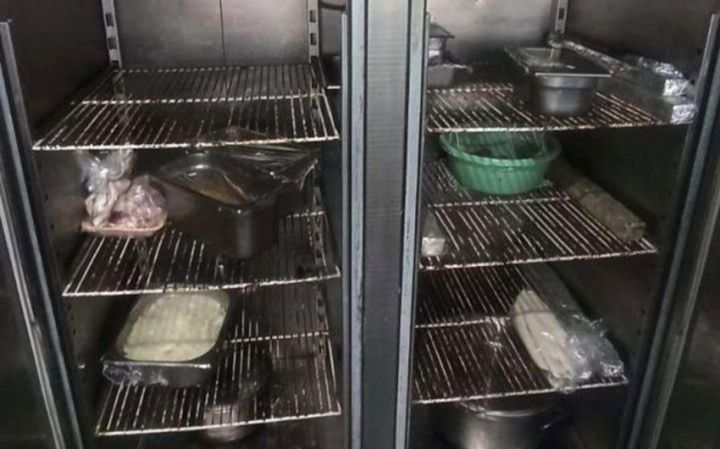
“Kristal plaza Baku” restoranının fəaliyyəti məhdudlaşdırılıb
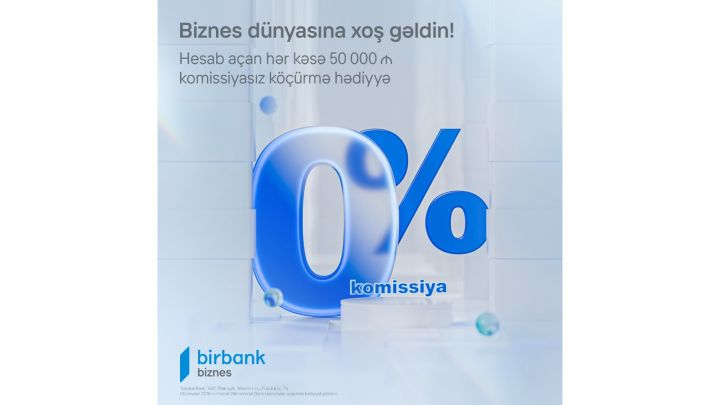
Birbank Biznes-dən yeni müştərilərə özəl “Xoş gəldin” kampaniyası
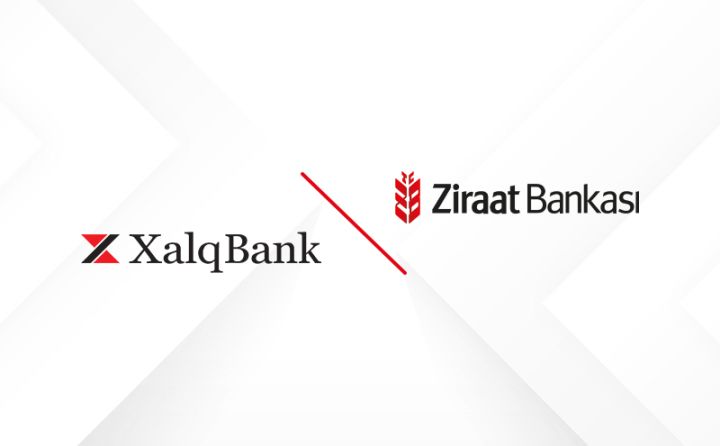
Xalq Bank növbəti dəfə irihəcmli beynəlxalq sindikat kreditləşməsi sövdələşməsində iştirak edib

AQTA bazar rəhbərlərinə xəbərdarlıq edib

Azərbaycanın ixrac etdiyi qara kürünün qiyməti açıqlanıb
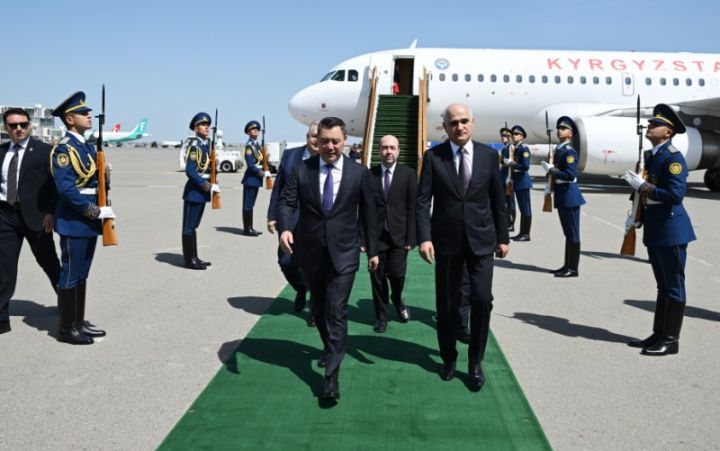
Qırğızıstan Prezidenti Azərbaycandadır
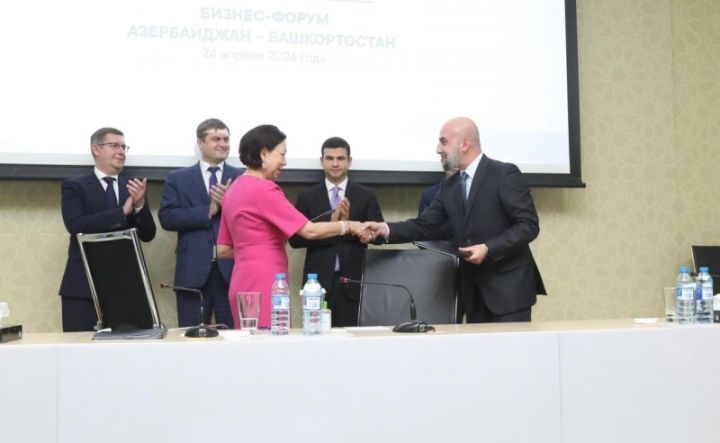
Azərbaycanın və Başqırdıstanın şirkətləri saziş imzalayıb

"2024-cü ildə mənfəəti minimun 20% artırmağı planlaşdırırıq"

“AvtoVAZ” Azərbaycanda “Lada” avtomobillərinin yığılmasına başlayıb
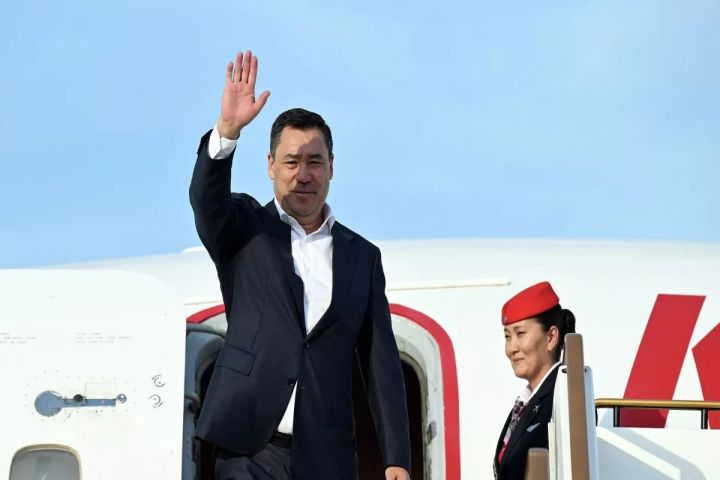
Qırğızıstan Prezidenti Azərbaycana səfərə yola düşüb

MG MOTORS AZƏRBAYCAN-dan “XÜSUSİ QİYMƏT” kampaniyası

Rəsmi məzənnələr açıqlandı
